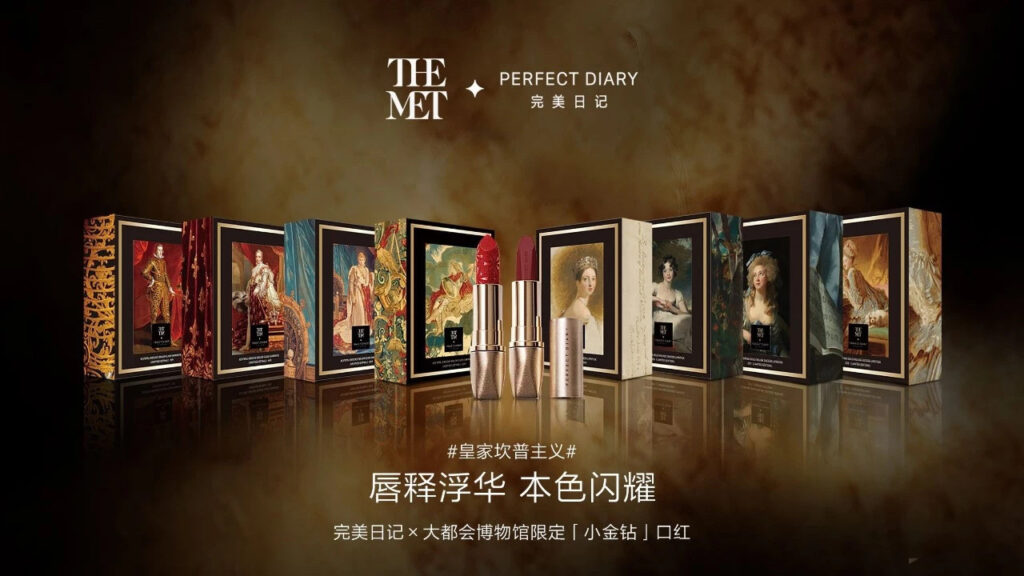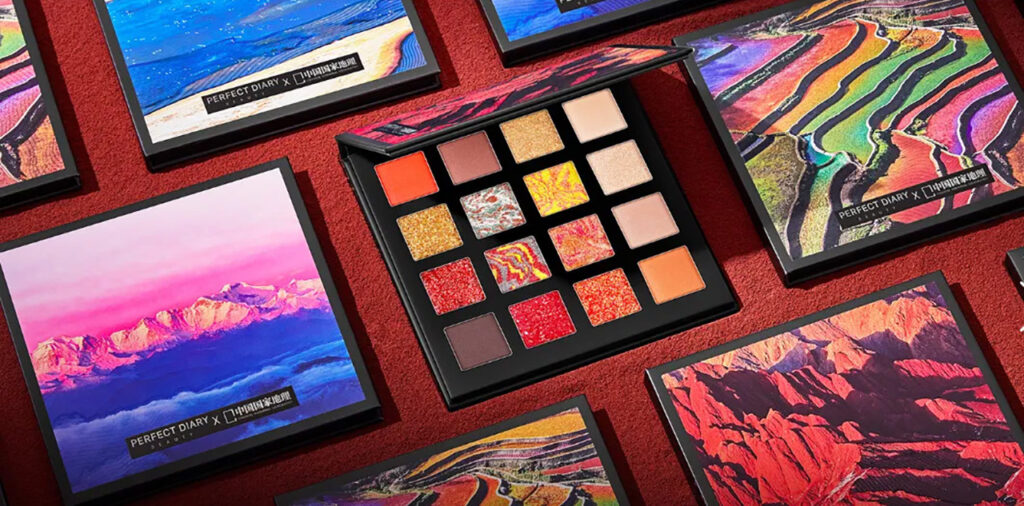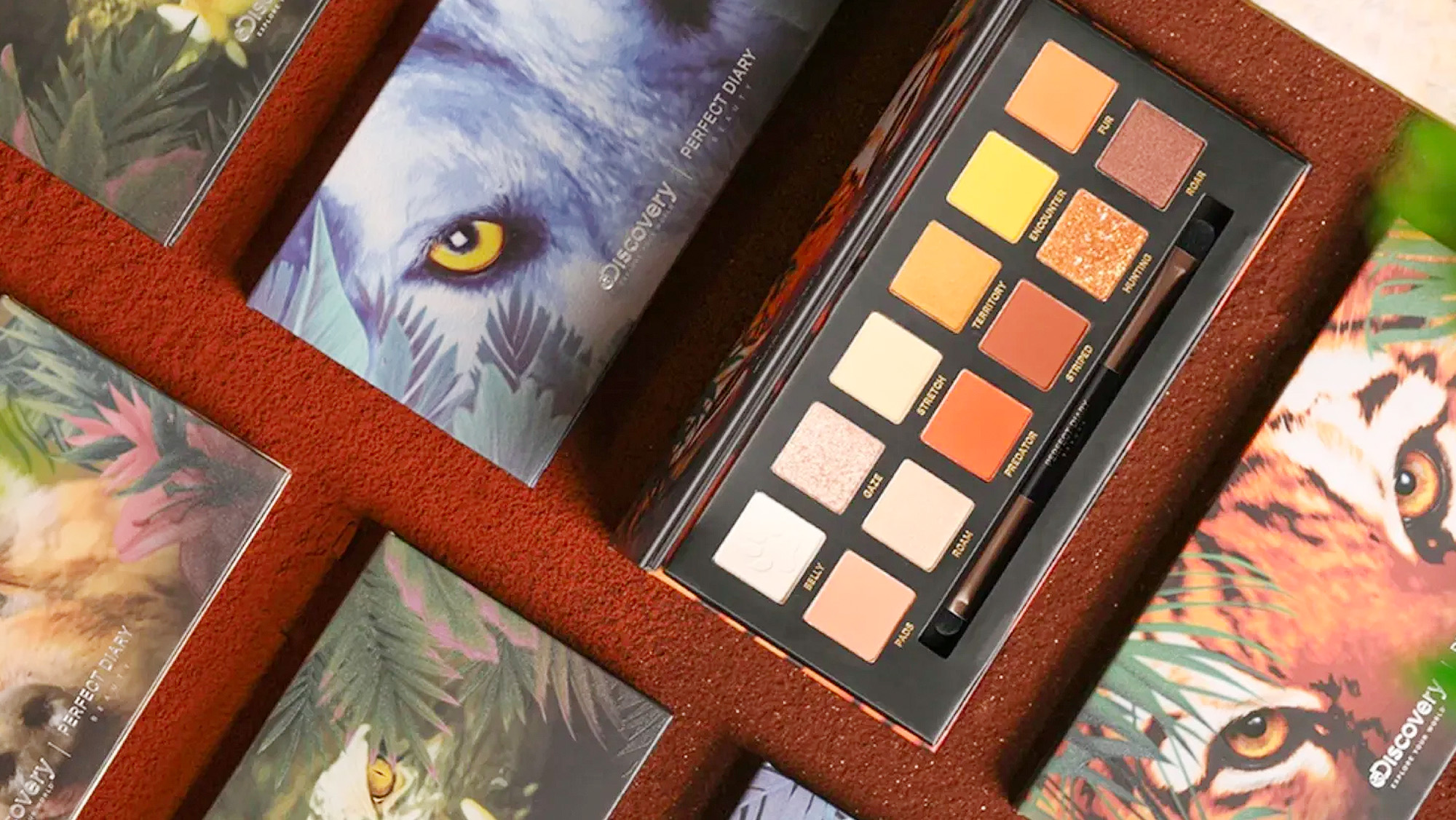Perfect Diary is known for a nimble digital footprint — one responsible for capturing Millennial and Gen Z hearts in the frenetic four years since launching. But its five-floor flagship store in downtown Chengdu evidences the emerging physical presence of China’s number three make-up supplier.
Opened in late 2019, the store’s pastel-colored, social media-friendly product display rooms, trendy cafe, and VIP lounge make it the physical manifestation of a brand that has focused on young consumer experiences since the start. Perfect Diary began as an exclusively online retailer that disrupted the market with affordable price points and an innovative D2C model that used WeChat groups and private traffic to cultivate a loyal consumer following. Today, the Guangzhou-based company operates more than 150 stores across China and strives to quadruple that number by the end of 2023.
The physical expansion speaks to Perfect Diary’s maturation from savvy upstart to shopping mall mainstay, a point boldly echoed by its blockbuster U.S. IPO in November that raised more than $600 million. Interwoven in Perfect Diary’s success story are cultural collaborations, which have tapped the surging popularity of products creatively incorporating cultural IP — known in China as wenchuang — and are helping to dramatically raise the brand’s profile.
Perfect Diary has somewhat pioneered the practice beginning with its 2018 collaboration with the British Museum. Drawing off the bright hues of Italian Renaissance ceramics, Perfect Diary created a 16-color eyeshadow palette exclusively for Singles Day, China’s e-commerce shopping bonanza on Nov 11.

Perfect Diary x The Metropolitan Museum of Art. Image: Perfect Diary
At first, these collaborations were about novelty and shock value, says Ye Chen, a research analyst at ChemLinked. “It was a marketing strategy. Few people knew the brand and they needed collaborations with large cultural IPs to win traffic and attention from the market.”
Increasingly, however, these partnerships have also driven sales. In 2019, Perfect Diary released a limited-edition collection of lipsticks inspired by the Metropolitan Museum of Art’s collection of royal paintings. Packaged in playing-card-style boxes with the corresponding royal portrait embossed on the lid, the lipsticks struck consumers as fun, unique, and affordable. The campaign drove 110 million reactions on Weibo and shifted 800,000 units.
Perfect Diary’s strategy is taking place in a broader cultural revival in which Millennial and Gen Z consumers are increasingly engaged by art and culture. Within this context, the brand offers itself as cultivated and sophisticated, says Ray Ju, Associate Director at Labbrand, a China-centric brand consultancy. “The marriage with cultural organizations is quite natural since [cosmetic brands and museums] are both related to art and creation. These collaborations create a sense of novelty while elevating the brand.”

Perfect Diary x National Geographic. Image: Perfect Diary
Recent cultural collaborations have tapped into natural beauty from a 12-color eyeshadow palette alongside the Discovery Channel — 70,000 units sold within the first 30 minutes — and a masterful Singles Day collaboration with China National Geographic on limited-edition eyeshadow product derived from Chinese landscapes — 130,000 sales through its Tmall store.
Crossover products between beauty brands and cultural institutions may be increasingly commonplace in China, but few achieve the frequency and diversity of Perfect Diary, says Ye. “Chinese consumers respect culture and buying these products makes them feel they know more about culture; it brings them closer [to culture].”
Complementing these partnerships are new celebrity ambassadors, which, though ubiquitous for beauty brands, are succeeding in pushing Perfect Diary further into mainstream consciousness, while also connecting with core Millennial and Gen Z consumers.
In October, Perfect Diary announced two high-profile ambassadors. First came Zhou Xun, a well-regarded household actress who promises to elevate brand status given her associations with luxury brands Chanel and IWC. Next was Troye Sivan, an Australian artist with a cult China following — a move announced via a Vogue China-produced campaign — an individual Ju believes will help Perfect Diary “become more international, edgy, and inclusive.”
Everything comes next for Perfect Diary. The IPO demonstrates a broad belief in the unicorn’s growth potential and the rollout of Mainland brick-and-mortar spaces will continue alongside an intensified international push, with a particular focus on Southeast Asian markets. Many analysts argue competing with international giants will require launching premium product lines, or even a separate brand. But to retain its core demographic, cultural collaborations are likely to be key in showing Perfect Diary remains China’s most creative beauty company.



